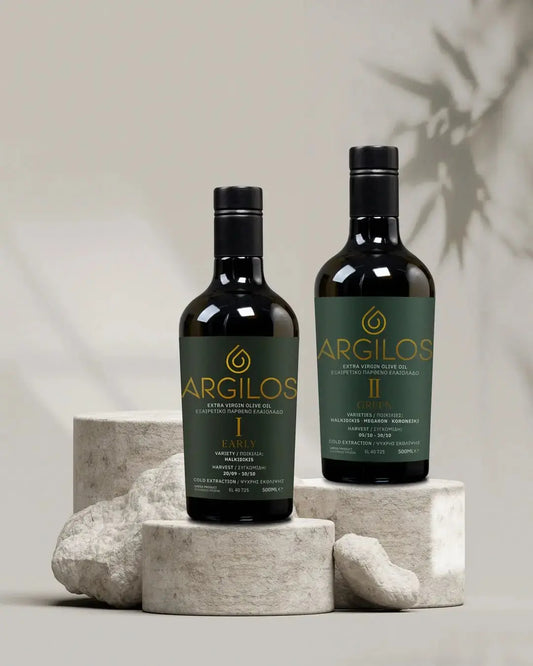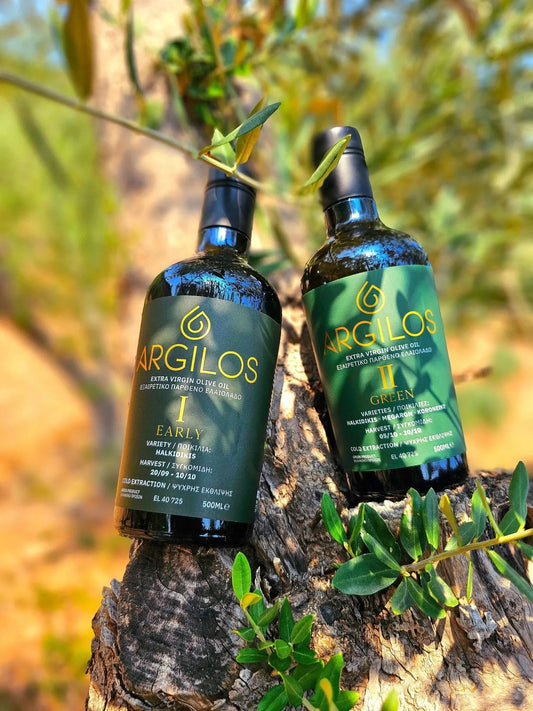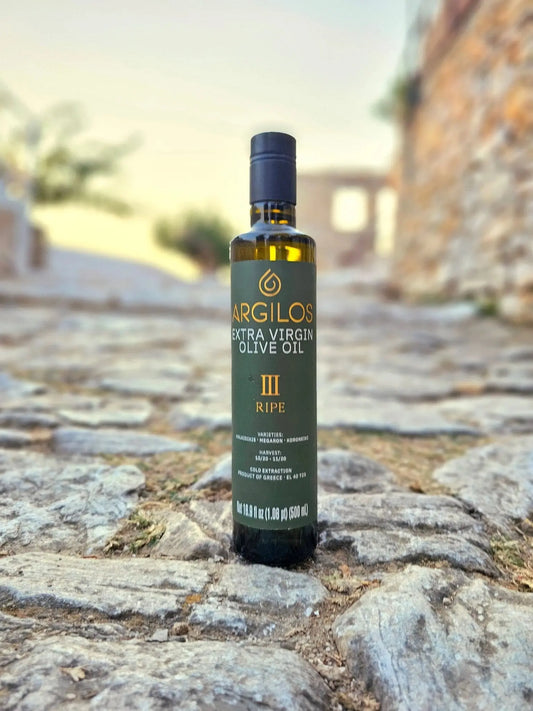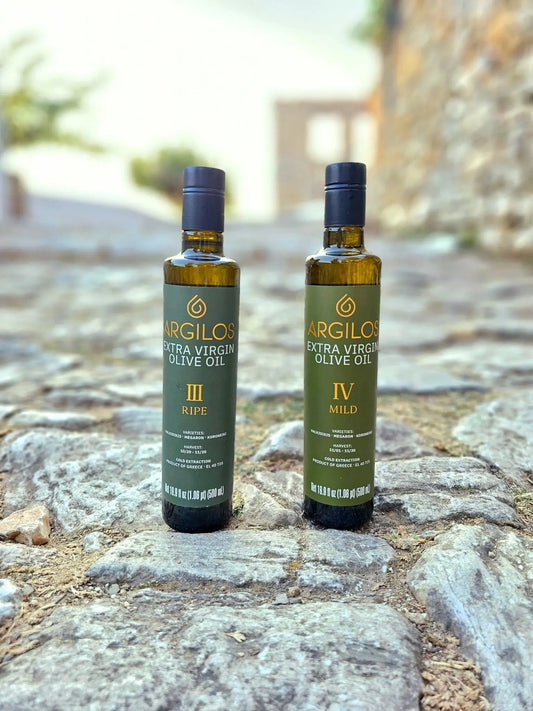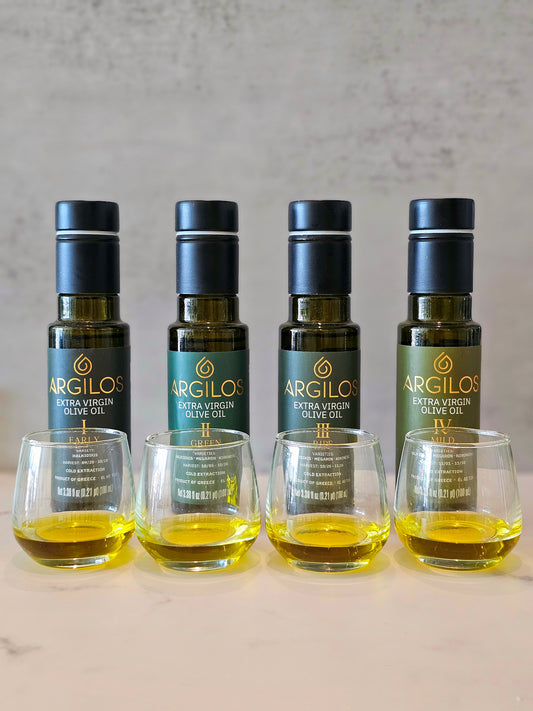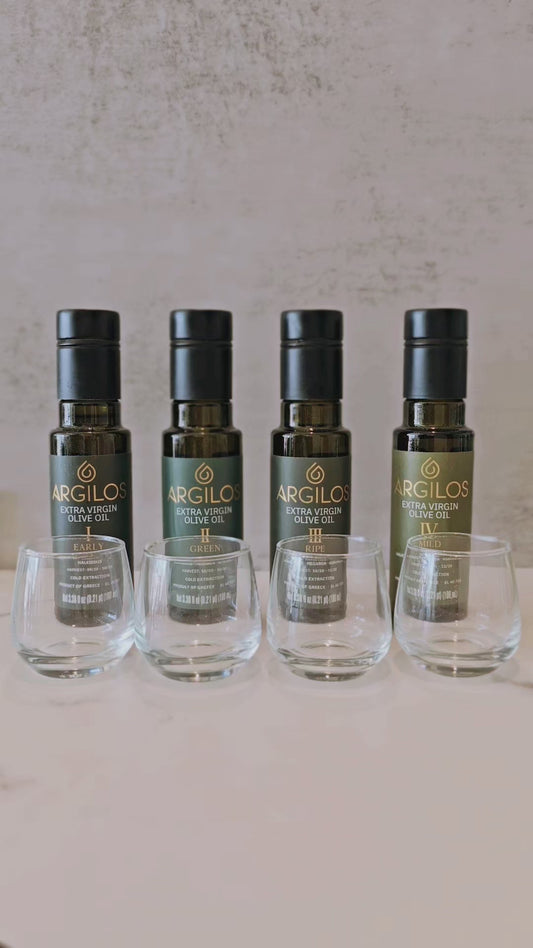Greek Olive Oil Cooking Tips Every Home Cook Should Know
Share
Greek olive oil is more than just a cooking ingredient—it's the heart of Mediterranean cuisine and a cornerstone of Greek culinary tradition. Known for its rich flavor, vibrant color, and powerful health benefits, Greek extra virgin olive oil (EVOO) is revered by chefs and home cooks alike. Whether you're preparing a rustic stew, tossing a fresh salad, or baking traditional Greek bread, the way you use olive oil can dramatically elevate your dishes.
In this guide, you'll discover authentic Greek olive oil kitchen tips passed down through generations. These simple but powerful techniques will help you maximize both flavor and nutrition, turning everyday meals into Mediterranean masterpieces. If you’re wondering how to cook with olive oil the Greek way, store it properly, or infuse it with herbs, this is your starting point.
Greek Olive Oil Kitchen Tips: How to Cook the Greek Way with Extra Virgin Olive Oil
1. Use Olive Oil Generously
In Greek kitchens, olive oil is not a garnish—it’s a foundation. From slow-cooked vegetables to baked casseroles like moussaka and briam, Greek recipes often call for generous amounts of olive oil to build deep, rich flavor. Unlike other cuisines that may use butter or refined oils, Greek cooking celebrates olive oil as a daily essential, making it both a flavor enhancer and a source of healthy fats.
2. Always Choose Extra Virgin Olive Oil (EVOO)
The best Greek dishes start with high-quality extra virgin olive oil. Always opt for cold-pressed, unrefined EVOO made from Greek olives such as Koroneiki or Kalamata. These oils have a deep green color, fruity aroma, and peppery finish—perfect for both cooking and raw applications.
3. Cook Low and Slow
To retain both the flavor and the health benefits of olive oil, Greeks traditionally cook over medium or low heat. High temperatures can degrade EVOO's antioxidants and subtle flavors. Whether simmering legumes, roasting vegetables, or baking savory pies, gentle heat is key to Greek-style cooking.
4. Drizzle After Cooking

For added aroma and brightness, many Greek dishes are finished with a fresh drizzle of olive oil just before serving. This simple step brings out the full character of the oil and enhances the taste of foods like grilled fish, lentils, soups, and roasted vegetables.
5. Store Olive Oil Properly
To preserve its quality, Greek olive oil should be stored in a dark glass bottle and kept in a cool, dry place—never near the stove or under direct sunlight. Avoid plastic containers or transparent bottles, which can lead to oxidation and loss of flavor over time.
6. Add Olive Oil to Dough

Greek baking often involves adding olive oil directly into doughs, whether for pita bread, phyllo crusts, or savory pastries. EVOO makes dough more tender, adds a subtle fruitiness, and helps create a golden, flaky finish that’s both delicious and heart-healthy.
7. Make Ladolemono – Classic Lemon-Olive Oil Dressing
This traditional Greek dressing combines olive oil, lemon juice, oregano, and garlic into a zesty emulsion perfect for grilled fish, steamed greens (horta), or salads. Ladolemono is a quick and easy way to bring authentic Mediterranean flavor to your plate.
8. Use Olive Oil in Marinades

EVOO is a key ingredient in Greek marinades, helping to tenderize meats and infuse them with herbs and citrus. A typical marinade includes olive oil, lemon juice, garlic, oregano, and sometimes wine or vinegar. It’s ideal for lamb, chicken, fish, and even vegetables before grilling.
9. Infuse Olive Oil with Greek Herbs

Infused oils are a staple in many Greek homes. Simply heat EVOO gently with dried herbs like oregano, rosemary, or thyme, and store for later use. These herbal olive oils are perfect for drizzling on roasted dishes or serving as a dip with fresh bread.
10. Soak It Up with Bread
No drop of olive oil goes to waste in a Greek meal. It’s common to use crusty village bread (horiatiko psomi) to soak up the flavorful olive oil and sauces left on the plate. This simple act not only highlights the oil’s quality but also reflects the communal spirit of Greek dining.

